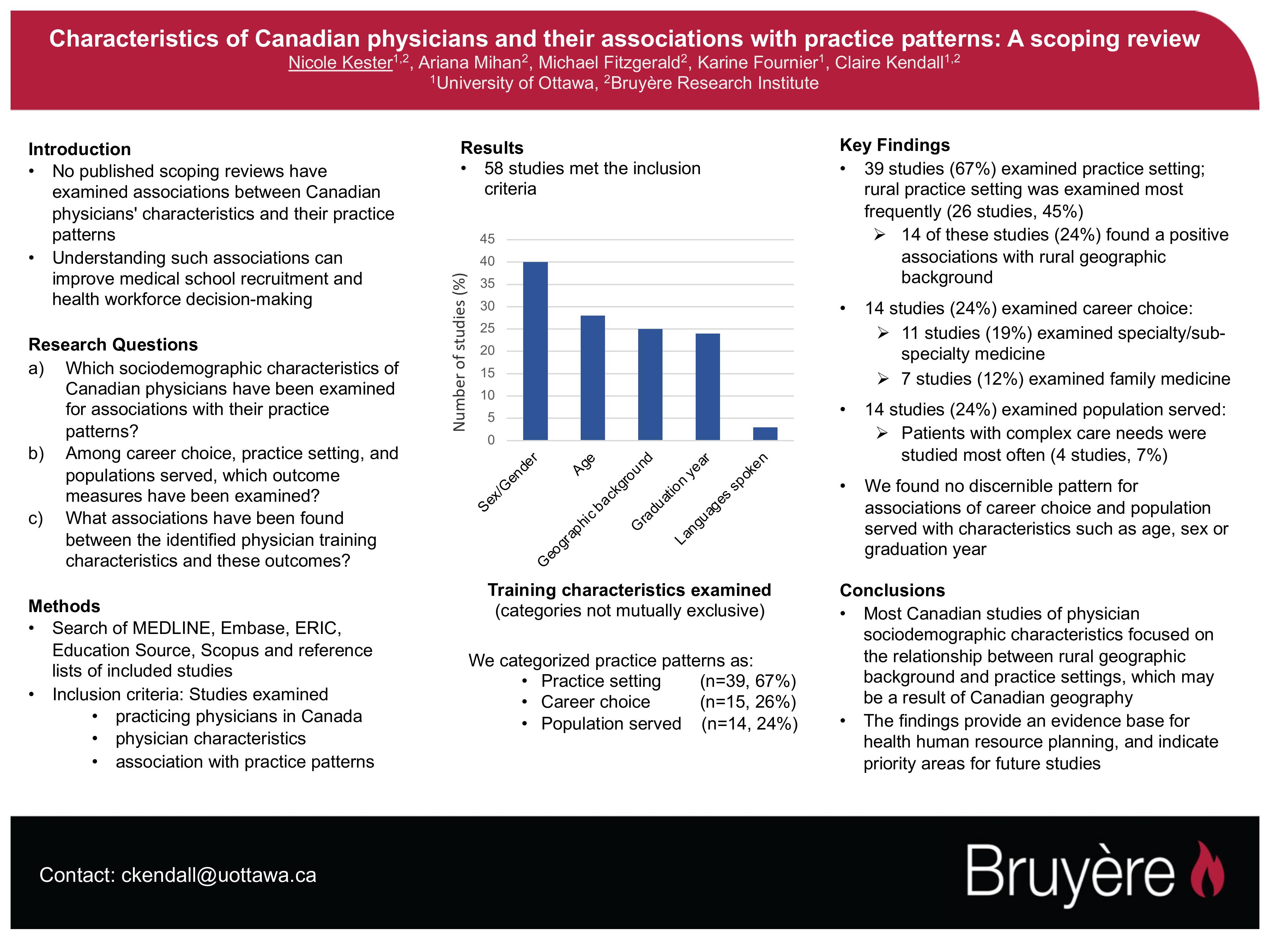PRP016: Characteristics of Canadian physicians and their associations with practice patterns
Nicole Kester; Ariana Mihan, MPH; Michael Fitzgerald, PhD; Karine Fournier; Claire Kendall, MD, PhD
Abstract
Context: Studies have shown the association of some physician characteristics with particular practice patterns. However, there are no published reviews on this topic focusing on the Canadian context. A better understanding of these associations could improve medical school recruitment and health workforce decision-making in Canada, a country with specific geographic considerations. Objective: To capture the sociodemographic characteristics of Canadian physicians that have been examined for associations with physicians’ practice patterns, comprising career choice, practice setting, and populations served. Study Design: A scoping review of the literature with descriptive analysis of extracted data. Setting or Dataset: Search of MEDLINE, Embase, ERIC, Education Source, Scopus, and reference lists of included studies. Population studied: Studies that examined a) practicing physicians in Canada, b) sociodemographic physician characteristics c) the association of physician characteristics with practice patternsOutcome Measures: Physician practice patterns: career choice, practice setting, and populations served. Preliminary Results: We included 58 studies for descriptive analysis. Preliminary findings show the majority of studies in Canada have focused on the characteristics of sex/gender (69%), age (48%), and geographic background (43%). Practice setting was the most frequently studied outcome category (67%). The majority of studies examined practice in rural settings, more than a third of which found positive associations between rural geographic background and rural practice setting. 26% of studies focused on career choice, including choice of specialty/sub-specialty medicine and family medicine, with mixed results. 24% of studies examined population served, but we found no discernible pattern of associations for characteristics such as age, sex or graduation year. Patients with complex care needs was the population most studied. Outcomes to be included: Outcomes reported will include the number and proportions of physician characteristics and practice patterns studied, and descriptive analysis of associations found between these. Our findings will provide a foundation of evidence for future studies aimed at informing health human resource planning.

Jack Westfall
jwestfall@aafp.org 11/21/2021Thanks for your terrific work on this research. Hope you can connect with us at the Robert Graham Center https://www.graham-center.org/rgc/home.html